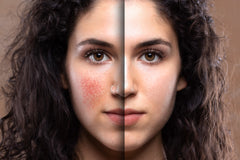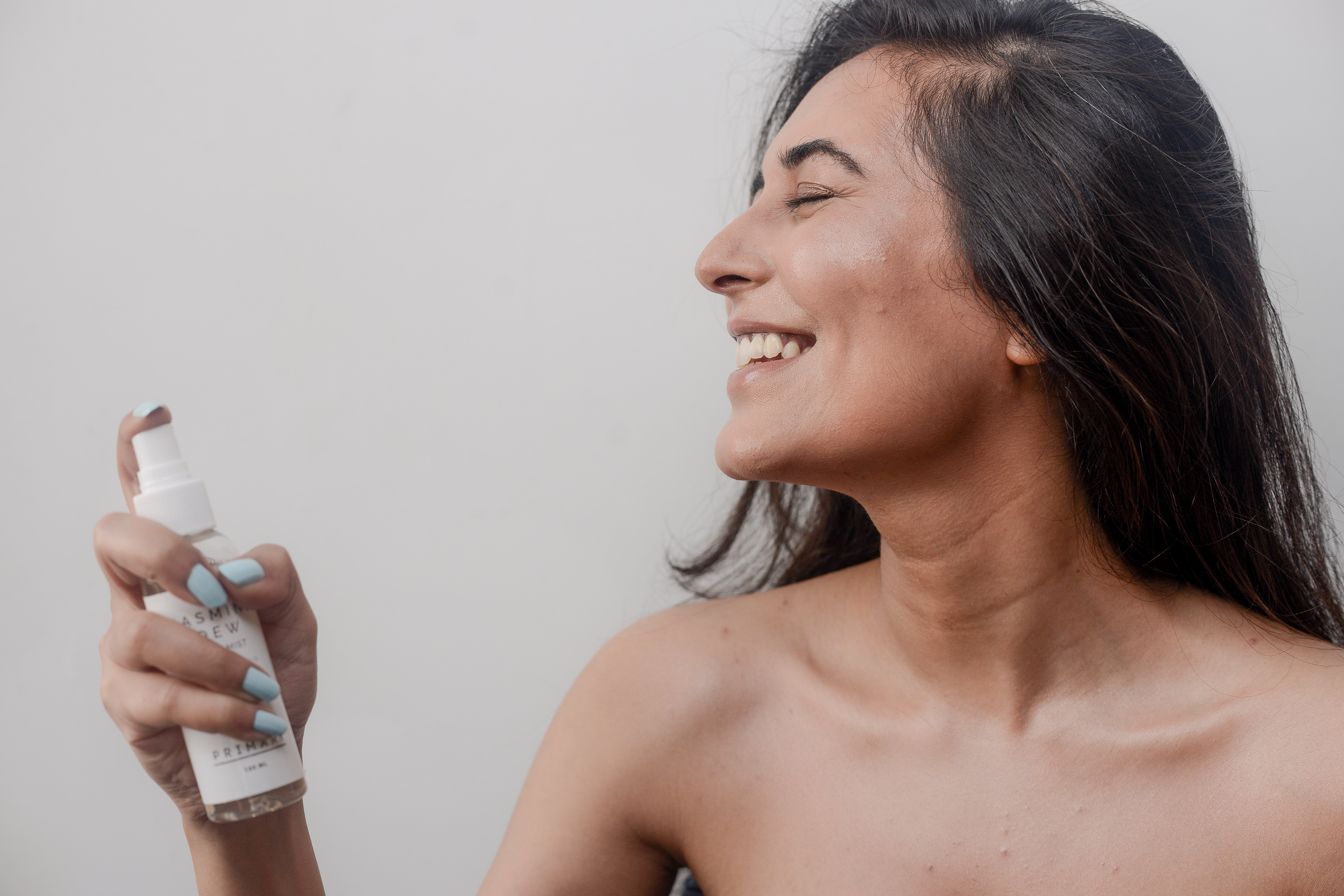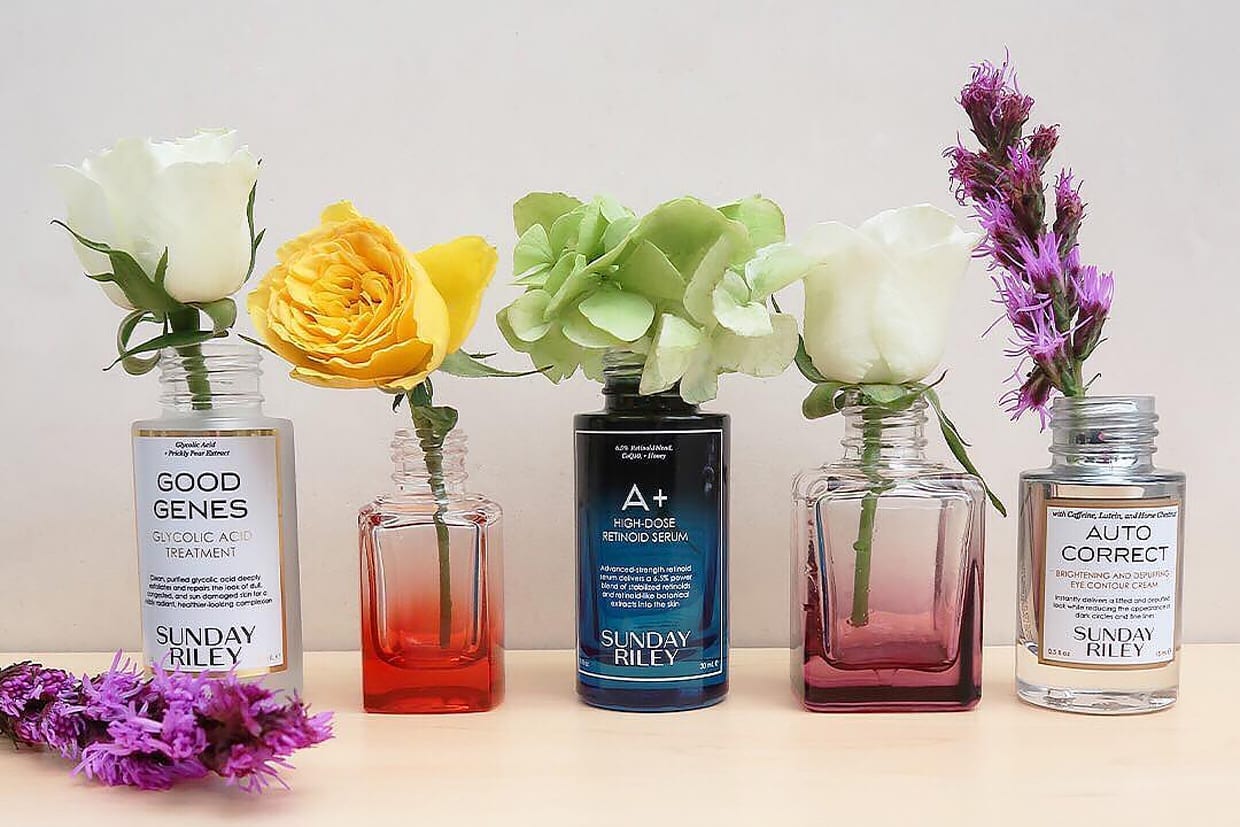4 Ways Your Gut Health Can Affect Your Skin

Until recently, the terms "gut health", "microbiome", and "probiotics" were not tossed around in casual conversations at salons and spas. However, now more and more people are realizing that products alone cannot guarantee perfect-looking skin without addressing the root cause of conditions such as acne and eczema. It isn't only because you didn't take off your makeup properly last night or because you switched to a new product- the cause lies deep within your system.
Why is this approach becoming increasingly popular?
Health-conscious consumers are increasingly tuning into the notion of the gut acting as our "second brain", capable of telling us things we previously missed out upon. Turns out that the gut microbiome- the bacteria that live in our intestines and colon and help digestion, the immune system, and other bodily functions actually have an integral role to play in the health of our skin. This connection of the gut-skin axis has been studied greatly and results show that a healthy gut is the key to healthy skin. Remember how your mom would nag you about having too many chocolates? Turns out she was right...Striking a balance between the good and bad bacteria present in the gut, and the hundreds of neurons in the stomach's lining that communicate with the brain play a vital role in maintaining a healthy immune system. An imbalance weakens the immune system, creating inflammation in the body which shows up on the skin, despite the medication and masks that you may be using. Here is a list of the usual suspects that compromise the gut health:
- Sugar
- Heavy carbs
- Caffeine
- Alcohol
- Processed food
- Lack of sleep
- High-stress levels
Often, skin conditions like acne, eczema, and dermatitis are symptoms of something going on deep inside the body, almost like a warning sign. A compromised gut leads to inflammation. This cycle of inflammation builds up toxins in the body and can stop the digestive system from working efficiently, sending the toxins straight to the skin. It is no wonder that sometimes, irregular bowel movements are responsible for frequent acne on the forehead or a sallow complexion.
1. Skin allergies
 Yup, you read correctly! If you have started to develop skin allergies are taking a set of antibiotics or switching up your diet, your gut microbes may be to blame. The reason? Your immune system. The chain could go something like this: the microbial community in the gut is altered, it stops producing anti-inflammatory metabolites that help modulate the immune system- this means that inflammation in the body starts to flare up as the compromised immune system starts to overreact to threats. This can attract allergies on the skin and elsewhere.
Yup, you read correctly! If you have started to develop skin allergies are taking a set of antibiotics or switching up your diet, your gut microbes may be to blame. The reason? Your immune system. The chain could go something like this: the microbial community in the gut is altered, it stops producing anti-inflammatory metabolites that help modulate the immune system- this means that inflammation in the body starts to flare up as the compromised immune system starts to overreact to threats. This can attract allergies on the skin and elsewhere.
2. Frequent acne
 Acne may also be a way in which your inflamed gut communicates with you. Some studies show that people with acne vulgaris may suffer from a disordered gut. This is why some dermatologists prescribe antibiotics to help "heal" acne. These medicines wipe out entire colonies of good and bad bacteria found in the gut.
Acne may also be a way in which your inflamed gut communicates with you. Some studies show that people with acne vulgaris may suffer from a disordered gut. This is why some dermatologists prescribe antibiotics to help "heal" acne. These medicines wipe out entire colonies of good and bad bacteria found in the gut.
3. Unexplained psoriasis
 We're all familiar with the term "psoriasis" since Kim Kardashian told her followers that she suffers from this chronic autoimmune condition. Well, Kimmy K might not be the only one! Psoriasis is a condition that causes an overproduction of skin cells that form scabs and flakes on the skin. For some of us, the problem may lie in the gut- lots of psoriasis patients are linked to having low levels of good bacteria (example: lactobacillus), and high levels of bad bacteria (example: salmonella). This may cause problems for the immune system, resulting in chronic skin conditions.
We're all familiar with the term "psoriasis" since Kim Kardashian told her followers that she suffers from this chronic autoimmune condition. Well, Kimmy K might not be the only one! Psoriasis is a condition that causes an overproduction of skin cells that form scabs and flakes on the skin. For some of us, the problem may lie in the gut- lots of psoriasis patients are linked to having low levels of good bacteria (example: lactobacillus), and high levels of bad bacteria (example: salmonella). This may cause problems for the immune system, resulting in chronic skin conditions.
4. Rosacea
 A chronic condition of skin redness, scientists, and dermatologists have been unable to detect the exact cause for rosacea but speculation suggests it could be partly genetic or gut-related. A study shows that rosacea has been linked to H.pylori infection- an issue that throws off the balance of the gut microbiome. Furthermore, it showed that according to a small study, people with rosacea have a high tendency of bacteria overgrowth in their small intestines. When treated, this tends to reduce their skin-related symptoms.
A chronic condition of skin redness, scientists, and dermatologists have been unable to detect the exact cause for rosacea but speculation suggests it could be partly genetic or gut-related. A study shows that rosacea has been linked to H.pylori infection- an issue that throws off the balance of the gut microbiome. Furthermore, it showed that according to a small study, people with rosacea have a high tendency of bacteria overgrowth in their small intestines. When treated, this tends to reduce their skin-related symptoms.
The solution?
One word- Probiotics! Probiotics are "good" bacteria used to maintain healthy digestive and immune systems. They can be taken in the form of supplements or through natural food sources. Probiotics help restore the balance within the gut when levels of bad bacteria start to rise. They are usually used to reduce gastrointestinal symptoms such as gas, bloating, and constipation but some studies suggest that if you take a probiotic while taking antibiotics, there are fewer chances of you getting diarrhea caused by the antibiotic. Furthermore, a healthy balance of probiotics in your diet may also reduce the number of colds you might get in a year. Pretty cool, yeah?
Natural forms of probiotics
While supplements may be one way to get your regular dose of probiotics, there are many food sources that are loaded with good bacteria. These include:
- Yogurt- especially greek yogurt
- Kefir- a tangy dairy drink
- Fermented vegetables- pickles or sauerkraut
 Getting the recommended dose of probiotics from food sources can be a little tricky. However, since probiotic supplements are considered to be dietary supplements and not drugs, the FDA does not monitor the manufacture of probiotics. People with a weakened immune system, be it by illness or medication, as well as people with cancer should not use probiotics without their doctor's approval. Hence, it is always best to consult with your local doctor or pharmacist before starting probiotic supplements!
Getting the recommended dose of probiotics from food sources can be a little tricky. However, since probiotic supplements are considered to be dietary supplements and not drugs, the FDA does not monitor the manufacture of probiotics. People with a weakened immune system, be it by illness or medication, as well as people with cancer should not use probiotics without their doctor's approval. Hence, it is always best to consult with your local doctor or pharmacist before starting probiotic supplements!




Comments